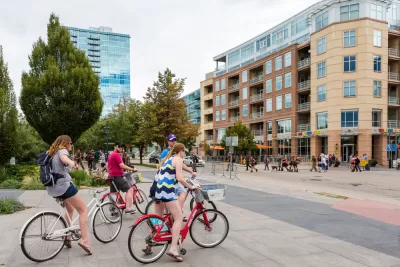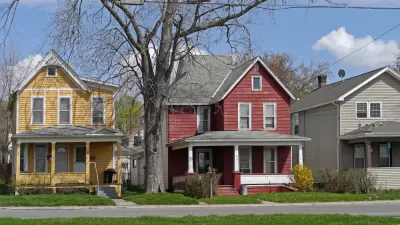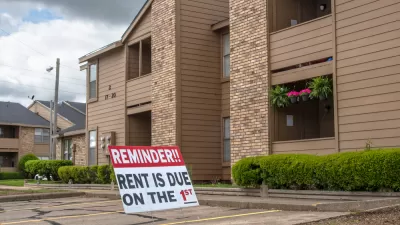A Denver writer calls attention to the city's worsening housing affordability, gentrification, and displacement challenges, and prescribes a YIMBY response.

Andy Bosselman, former editor of Streetsblog Denver, writes a guest opinion piece for The Denver Post to call attention to the gentrification of Denver, as prices rise and, according to the article, the city does little to stem the city's affordability crisis.
If you’re not rich and you would like to continue living in your neighborhood, you have reason to worry about a recent report that ranked Denver as the second most intensely gentrifying city in the U.S.
Between 2010 and 2017, more than 100,000 people moved to Denver. But the city issued just 35,000 permits for new housing units in the same timeframe.
In the process of this rapid growth, according to Bosselman, its neighborhoods populated mostly by Latinos that have seen the most newcomers. "Between 2012 and 2017, in nine mostly Latino neighborhoods of West Denver, the number of people with a college degree increased 66%, according to a report from the West Denver Renaissance Collective," according to Bosselman, who cites the West Denver Renaissance Collective for the data. "Those making more than $100,000 increased 97%. And out of 24,000 households, 3,900 were displaced between 2015 and 2018, including 5,800 children."
According to an interactive map from the National Community Reinvestment Coalition cited by Bosselman, Denver neighborhoods most likely to follow the same path of gentrification and displacement are parts of Five Points, Capitol Hill, North Denver, and West Denver.
To Bosselman, the clear solution to the city's affordability challenges is to build more housing, but the city lacks any sort of target for planners and developers to work toward, and the problem is only to get worse as the financial effects of the pandemic take deeper root around the city.
FULL STORY: Denver doesn’t want to know how much housing it needs — and it needs a lot

Alabama: Trump Terminates Settlements for Black Communities Harmed By Raw Sewage
Trump deemed the landmark civil rights agreement “illegal DEI and environmental justice policy.”

Study: Maui’s Plan to Convert Vacation Rentals to Long-Term Housing Could Cause Nearly $1 Billion Economic Loss
The plan would reduce visitor accommodation by 25% resulting in 1,900 jobs lost.

Planetizen Federal Action Tracker
A weekly monitor of how Trump’s orders and actions are impacting planners and planning in America.

Restoring Northern India’s Himalayan ‘Water Temples’
Thousands of centuries-old buildings protect the region’s natural springs and serve as community wells and gathering places.

Milwaukee to Double Bike Share Stations
Bublr Bikes, one of the nation’s most successful, will add 500 new e-bikes to its system.

DC Extends Application Window for Outdoor Dining Permits
District restaurants will have until the end of November to apply, but businesses with permits in rush hour parking lanes must end operations on July 31.
Urban Design for Planners 1: Software Tools
This six-course series explores essential urban design concepts using open source software and equips planners with the tools they need to participate fully in the urban design process.
Planning for Universal Design
Learn the tools for implementing Universal Design in planning regulations.
Caltrans
Smith Gee Studio
Institute for Housing and Urban Development Studies (IHS)
City of Grandview
Harvard GSD Executive Education
Toledo-Lucas County Plan Commissions
Salt Lake City
NYU Wagner Graduate School of Public Service





























